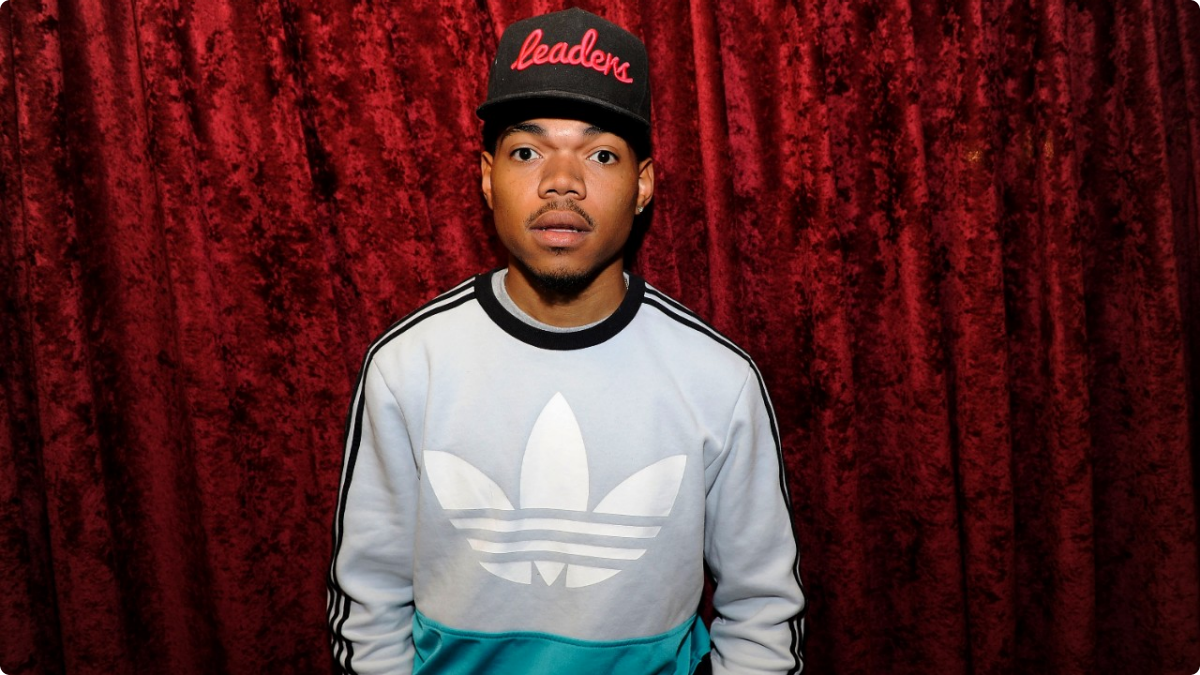ZSÓFIA PAULIKOVICS explores the latest mixtape from the lyrically dextrous Chicagoan.
Coloring Book is an album about joy. It takes Chance the Rapper’s style firmly in the gospel direction – a move that’s garnered mixed responses from his fan base, even though his lyrics have lost none of their tightness since his second mixtape, Acid Rap. But, for Chance, gospel isn’t simply a stylistic choice, but a vision: the album was created with a spirit of community. Chance has an extraordinary mindfulness when it comes to collaboration: rather than sampling, he gives space for featured artists to expand in their own style and tailors tracks to them without losing his own musical identity in the process.
The opening ‘All We Got’ features Kanye West – the two last collaborated on ‘Ultralight Beam’, the first track from The Life of Pablo, Kanye’s latest album. ‘This ain’t the intro but an entrée’, Chance says – and it feels fitting. His critically acclaimed lyrics on ‘Ultralight Beam’ has already done the work of an introduction: laying down his hopes and dreams for Coloring Book. The song pairs nicely with the outro ‘Blessings (Reprise)’, where Chance reflects on his relationships with God, his family, and Kanye, in spoken word.

The idea of community is especially important, because so much of the album is inspired by Chance’s faith. Like the institution of a black church, whilst the album is for everyone to enjoy, it was made with and for the black community – especially black Chicagoans.
References to Chicago are scattered throughout the piece: in places (79th street) in phrases (juke jam), in featured artists (Jeremih, Saba, Noname). They become especially prominent when Chance gets overtly political. ‘Summer Friends’ sets the scene in Chance’s childhood neighbourhood (‘Bunch of nappy headed bike- stealing Chatham boys /None of my n***** ain’t had no dad /None of my n***** ain’t have no choice’) before moving into a meditation on Chicago’s notorious increase in crime rate during the summer. This is a topic he has spoken about in songs before, such as in ‘Pusha Man/Paranoia’ (‘Cause everybody dies in the summer/ Wanna say your goodbyes tell them while it’s spring’). There’s a subtle but definite comment on police practices (‘Summer school get to losing students / But the CPD getting new recruitment’). There is also, as one commenter noticed, a gun-like pop following the prayer interlude, before the song moves swiftly into Jeremih’s verse. The outro, sung in soft vocals and underlined by string instrumentals, sounds a little like a prayer.
‘No Problem’, featuring Lil Wayne and 2 Chainz, is the mixtape’s statement of purpose, a nod to Chance’s continued stance against signing to a record label and releasing his mixtapes commercially. He has repeatedly expressed his contempt towards the Recording Academy, who used to evaluate artists for the Grammys based only on number of copies sold. The Academy has recently emended regulations to include albums streamable online, meaning that Coloring Book, the third of Chance’s mixtapes, may now be eligible for nomination. He anticipates this on All We Got (‘This is officially first/ This is the third’) and with good reason. By sheer public acclaim his second album, Acid Rap, should have been a clear Grammys candidate.

‘No Problem’ opens with a line by Detroit comedian Ha Ha Davis, famous for his ‘Big Fella’ sketches, followed by the refrain (‘If one more record label try to stop me/ It’s gon’ be some dreadhead n***** in ya lobby’). But the track isn’t bitter. The rhythm is upbeat, the hook (‘You don’t want no problems, want no problems with me’) is teasing rather than threatening. ‘Mixtape’, featuring Young Thug and Lil Yachty, takes a slightly more sombre tone as Chance questions whether anyone still cares about music for music’s sake, without a commercial agenda.
Combine the sentiments of ‘All We Got’ and ‘No Problems’ and you get ‘Blessings’, in many ways the album’s most climactic song. Co-written with poet and soul singer Jamila Woods, it solidifies Chance’s mission statement of art vs the institution (‘I don’t make songs for free, I make ‘em for freedom/ Don’t believe in kings, believe in the Kingdom’). It also elaborates on the awestruck sense of gratitude he opened with and celebrates the serendipity of unexpected blessings, like ‘my ex girl getting pregnant and her becoming my everything’.
Following the introspective first half, the album moves along with a more upbeat tempo. ‘Angels’ featuring Saba is fit for an outdoor party on a balmy summer evening, the verses suspended on laid-back electro beats. ‘Juke Jam’ reminisces about teenage romances, with pop undertones delivered by Justin Bieber and a seductive hook by Towkio referencing fellow Chicagoan R. Kelly. ‘All Night’ deals with the difficulties of navigating the surge of opportunistic new friends that come with increasing fame. Produced by Kaytranada, it’s the obvious club-hit, with a funk beat reminiscent of 80s late disco or early house. It is ironic that Chance’s vantage point feels like that of the one sober person at the party who isn’t having fun.
Between the enormous success he’s enjoyed since Acid Rap and new fatherhood, Chance explores complex emotions with such maturity it’s easy to forget he is only 23 – save for the odd bits of millennial nostalgia. A reference to The Lion King in ‘Blessings (Reprise)’ follows his confession about the difficulties of new parents in ‘Smoke Break’. But that’s what Chance does best: singing about the silver lining in a way that makes you forget there are clouds at all.




